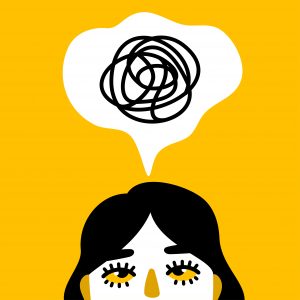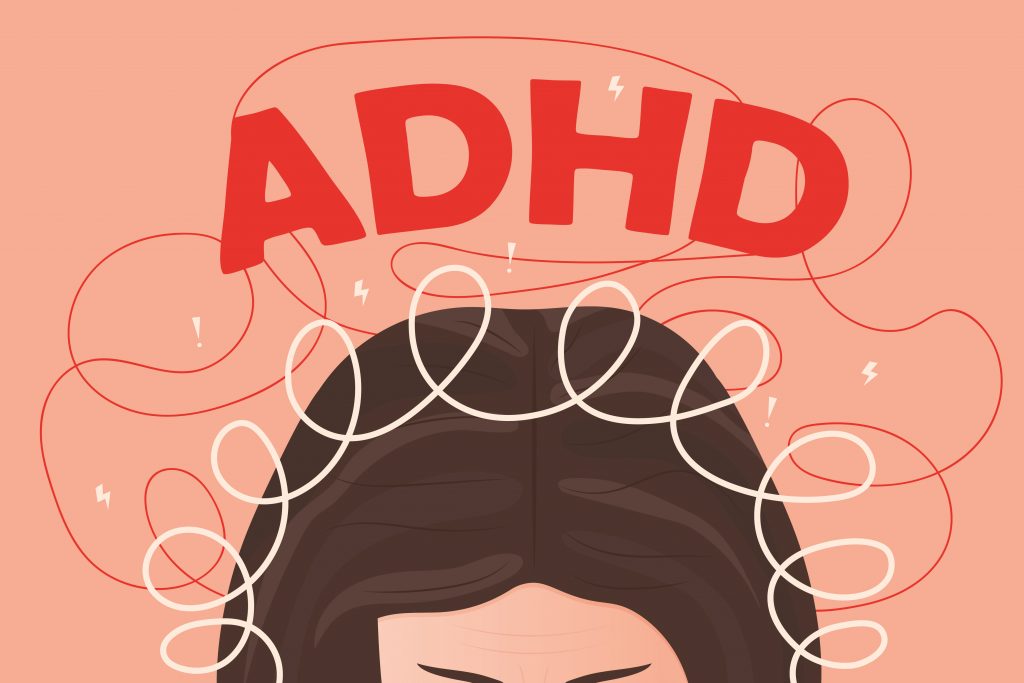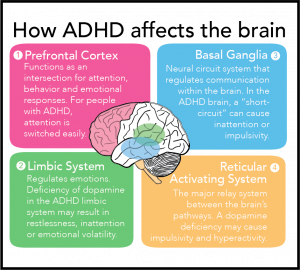I know, I know – I launched a website with a big plan to talk about all the different things that make up my life, and here I am posting yet another article about ADHD…but in my defense, being neurodivergent is kind of all the different things that make up my life…at the very least, it’s the background noise that shapes some foundations in everything else I am!
Like pretty much every woman who was diagnosed as neurodivergent later in life, that diagnosis became my entire personality for quite some time – and I know that the people closest to me are already sick of hearing me talk about it. Unfortunately for them, I’ve still got so much to read, to study, to learn, to identify with and to understand about it (about myself) that I suspect this particular hyper-fixation will continue for a long time!
Rather than boring them further I guess I’ll do my brain dumping and processing all the mountains of information here…because it feels like no matter how hard I search, I can’t quite find the information I want to find, so I’m having to write it myself. Hopefully, what I write here will be useful for others who find themselves where I am!

What about me and my ADHD?
There are countless books, YouTube profiles, experts, articles and TikTok streams built on how to cope if you are around someone with ADHD. The impact it has on everyone else. The tools, systems, coaches, medication and planners that we can use to be ‘better at being normal’ or manage the impact of ADHD on our executive function and patchy focus…but what about the rest of it? What – and excuse how much of a selfish brat this makes me sound – about me?
What about what I need, what about what I’m struggling with? What about the support I need from them?
There are more and more news stories and articles from famous people announcing their diagnosis, and the way they credit their ADHD as a ‘super power’ – the secret to their success. There are influencers and content creators sharing how being neurodivergent impacts their relationships. Journalists who write pieces around how frustrating it is to love someone with ADHD. When you search for advice from psychiatrists to share with your own loved ones it seems they all come from that same place: how frustrating it is for the partner and how they can get support to cope better with those frustrations…
But what about me?
What about us? The ones living with ADHD, who – I promise – are impacted much more than the people around them, and harmed constantly by the shame, the guilt, the fear, the confusion and the failures that we can’t seem to get a grip on…because trust me when I say that we know it’s hard for you. We know that it’s frustrating, and that the things that seem to come so easily to you, and which we just can’t do consistently, must be infuriating to watch us cock up over and over and over – but we can’t help it. It isn’t a choice. It isn’t deliberate. It isn’t laziness, opting out, quitting, not caring enough, or being selfish about the impact we have on other people. It just isn’t…and still, no matter how much I search, I can’t seem to find enough information about how to help, support and love someone with ADHD, because 99% of the information is about supporting their partners, and how hard it is for them – and putting all of the responsibility back on to us to just ‘be better at being a functioning adult’. Books, videos, articles – acres and acres of content aimed at supporting the family, friends and loved ones of a neurodivergent person, and the strategies and systems they can encourage their useless, irritating, burdensome ADHD person to embrace, in order to be…you know, less annoying? I guess?
If only I’d thought of just being less annoying!
If only I’d thought of “just not being shit” or “just, you know, doing the thing? Like everyone else does?”
“Get a planner”
“Put it in your phone calendar”
“Set reminders”
“Use alarms – take ten minutes each morning to look at what you need to do and just plan it better – make a list!”
MAKE A FUCKING LIST?!
Why didn’t I think of that??!
…oh, no, wait, I did.
Of course I did. Of COURSE I fucking did.
We all did! But that’s just not how our brain works, and it’s not a choice we are making – it isn’t a choice and we don’t want to be this way – but no matter how much we try to communicate that, we just get berated again. When we try to explain that this is just how ADHD impacts people, and that we can put all of the strategies in place that will help some, but nothing will fundamentally change who we are, and there will inevitably be days that those strategies fail, or we need to adapt something within them to make sure that it can continue to work for us because routine is the enemy of our function even when we desperately need it!

What about what we need?
Every time I’ve typed “loving someone with ADHD” into a search box – whether it’s google, TikTok, amazon, academic articles, opinion pieces, whatever – I find the same thing. Information about how hard that is for them. For the partners, families, friends – whoever – and different things the person with ADHD needs to do – to change, to improve, to fix – to make the relationship work.
Ways that the partner or other person can get support, or speak to other people in the same situation (the same horrible, difficult, sad situation…) to share their frustrations…but there’s very little out there that we can share with people, that we can show to people, that explains what we need from them. What they can do to help us, to support, to buffer, to encourage, to tolerate, to help so that we are better able to manage everything we need to. To learn about the way our brain works, the way we process information, the executive dysfunction, the time blindness, the hyper-focus, the challenges, the emotional dysregulation, the fatigue, the fear, the stress, the mistakes, the frustration that we are also living with and which impacts us far more than it impacts them, and which is not deliberate.
I know. I know it’s frustrating and hard and boring and relentless, if we keep messing up, if we keep letting you down – but as I keep saying, it’s not a choice – so if we aren’t doing it deliberately, we can’t always deliberately avoid doing it either: no matter what strategies we try to put in place, no matter what systems, planners, lists, we will struggle – and even if we are actually achieving it all, managing it all, the strain that puts on us is also significantly more than it is on someone who doesn’t have ADHD.
Even though writing is my full time job I still struggle to find the words that will communicate what I’m trying to effectively (especially when so many people I try to explain it all to think I’m “just making excuses” or using my ADHD diagnosis as “a convenient excuse to not take responsibility”. Still: I’m going to try again here…
Having ADHD isn’t like getting a cold: it’s not something that hits for a few days and then goes away. It’s not a ‘sometimes’ issue. It’s not in any way caused by any choices we make, or by the amount of effort we put into our lives. It is always. It is permanent. It is not a mental illness, it is not a moral failing, it is not a lack of desire to be ‘normal’ and it is not a ‘trendy label’ that we use to wriggle out of responsibilities.
It is a physical difference in the structure of the brain. In the way the brain develops. Let me say that again, just in case you’re skimming this; it is a physical difference in the structure of the brain. Which means that no amount of good intentions or effort will make it go away, or stop it impacting us.
Of course there are ways to manage it better – systems, support, medication, therapy, coaching, strategies, which can reduce the negative aspects, and give us a better starting point to maintain our function – but it can not be ‘cured’. It can’t just go away and stop being a problem simply because we know we have it, and there is no magical medical wand that can re-structure a brain. So the positive changes we can make when we are being supported, when our needs have been met, when the medication is working, are great – but they don’t erase the problems, they don’t ‘cure’ our neurodivergence, and even with the best support and will in the known world, none can help forever, with no stumbling.
There are a lot of studies on this, which will evidence it better than I can: here are a couple of videos to look at first, showing brain scans that evidence this physical difference: the first is very short, the second goes into much more detail.
Let me try to explain what it’s like from our side…
From the outside I know what it looks like. The procrastination. The bed rotting. The doom scrolling. The missed appointments, forgotten plans, terrible time keeping. Always losing things. I can see it – because I am in it, every single day.
I can see how it looks.
Like laziness. Like a lack of care. Like a lack of effort. Like someone just doesn’t care enough to pay attention, to make the effort, to try.
From the inside, that isn’t the case at all. I think we do nothing but try – nothing but care. We care too much. But in a neurotypical brain, when a task (any task) needs to be done, they think of the task, then take action to do the task, and then…well, there is no ‘then’ – that’s it: the task is just done…
In an ADHD brain? Not so much…every task comes with twenty side quests, distractions, stress, the panic of not knowing how to prioritise tasks, the knowledge that we’ve failed at a thousand tasks this week already, the task itself might be a trick, there are seventeen noises we can’t identify, something is touching me, I am an alien in a meat sack, and somebody lost the remote!
It’s kind of like every single thing we do is in a second language. Messages that move through a neurotypical brain in an instant, instinctively, automatically, like switching on a light, are passed through treacle, whispered into a tin can on a string that stretches to another rusty can on the far side of a canyon. We can get them there – but it’s harder for us.
Things that look simple – instructions that are very basic for neurotypical minds – are often overwhelming.
“Tidy the kitchen” is a single task to a neurotypical brain.
To me, with my ADHD brain, that’s seventeen tasks in a trenchcoat.
Where do I start? What needs to be tidied? If I empty the dishwasher, will I need to re-organise the cupboards or drawers? If I put the dirty dishes in the dishwasher I’ll also need to top up the salt or the rinse aid, and then wipe the surfaces, but doing that means crumbs might go on the floor so I’ll have to sweep or vacuum, and then I’ll need to empty the vacuum, but the bin is full, so that’s a whole new task, and I’ll have to go through the back door which means I’ll also spot messes in the living room that need doing, and maybe see dog mess in the back garden that needs to be picked up, and since I’m out there I should take the laundry to the dryer which is in the garage, and then the fluff filter and water tank need emptying, and the cardboard needs flattening to get it ready for recycling collection, and do I need dog food from the outside fridge, and oh FFS now I need to fold this laundry and organise it, but the table is still covered in dirty dishes and un-sorted mail, so now I’m sorting mail and remembering I was doing the dishwasher, but it’s full of clean dishes, and someone’s stacked the pans wrong and the tupperwear drawer is a mess, so I need to sort those, and now I’ve got all of the pans and tupperwear out and the dog needs a wee, and I’m picking up mess in the garden, and those plants need dead-heading, and I can’t find the key for the shed so now I’ve got to sort out that little shelf they’re supposed to live on, but I’ve emptied it all off and can’t find the key – did my son have it last? I’ll have to go up two flights of stairs to search his room for it, but his room’s a tip so now I’m picking up all the dirty laundry, and the basket is full so I’ll take that downstairs and sort it into loads, and putting the first load on, but I’ve just finished the detergent so I’ll pop that in recycling, but the recycling bins are full, so I’ll take them out to the big bin, and I forgot to put a new bag in the main bin so I’m doing that, but the bags are running low so I’ll just pop onto amazon to order some more, and I’ve got seven notifications and now I appear to be sitting on the floor playing Candy Crush, and TikTok pinged so I’ve been watching videos for twenty minutes, and I have crumbs on my butt because oh yeah I was vacuuming, and the shoes aren’t on the rack so I can’t hoover here, so I’ve got to sort them all out, and since I’ve vacuumed I’ll need to mop, and the mop is in the shed for some reason, but I can’t find the key – oh yes, I was looking for that upstairs! Now where did he leave that key – is that his glasses under the bed? They need cleaning – where are the wipes? Ok, that’s done, what was I supposed to be doing just now…why am I upstairs? The key! Oh I remember; it’s in the apron pocket because I popped out to get something from the freezer when I was making dinner, but crap, I put the apron in the laundry and that means I can’t get that key until the load finishes in an hour – I’ll finish the dishes: oh crud, the Tupperware – stack that all back neat and tidy and the doorbell is going, get that, settle the dog, he’s out of treats, add those to the shopping list, I should start a Tesco order, have I got enough money in the right account? I’ll just log into my online banking app and check – oh, more notifications, what’s that? I should reply to that email now or I’ll forget…ok, whoops, twenty more minutes have gone to doom scrolling, I need to make a list for work – I should message my cousin back or I’ll forget again and she’ll think I’m mad at her – is she mad at me? Probably; I bet everyone is mad at me – I don’t blame them, I never reply properly, and I’ve not called or visited in over a year – when can I visit? I’ll check the calendar to see if there’s a free weekend that would work – are the kids here or at their Dad that weekend? Oh shit I was supposed to text him about the school trip – where’s the email about that? Oh that work one replied, I’ll just quickly pop to my desk to do a proper reply to that – and I’ve left LinkedIn open on the screen and have ten notifications for that, so I’ll just quickly deal with those, and what was I doing…I’m thirsty, I’ll get a drink and sit down to do some work properly…drink, back downstairs, oh my favourite cup is dirty – oh, that’s what I was doing: the dishwasher! I’ll just finish those dishes – and now I have clear table space, so I can finish folding and sorting this laundry – the next load just finished, which means I can get the shed key back! Fab: Laundry to the garage, stop in the garden to get the mop from the shed; can’t carry that and the laundry basket, I’ll just prop that against the back door and come back for it in a second: I’ll just fold this load too, or it’ll sit in the basket for days and get all crumpled and I’ll have to iron it, and we all know I’ll never make time to iron – I hate ironing! Oh, that post needs to be opened – crap, another late bill: I need to log into that account and sort it now or I’ll forget…more notifications: more doom scrolling. More sitting on the floor playing a game. Hours have passed, and every task is only half done, and I’m exhausted, and it looks like I’ve done nothing but sit on this bit of floor all day, and all I was intending to do was “Tidy The Kitchen” – which is simple, right?!

An ADHD brain is physically different to a neurotypical brain.
Which is why I get so frustrated, and hurt, when I’m searching for ways to help me to communicate what I struggle with and why, or to find resources to share with my loved ones that will explain what I need from them, or that I actually and quite literally cannot always strategise my way out of finding it hard even when I’ve been able to before, and instead just keep finding yet another resource that only gives perspective on the impact that has on someone else and the things I need to do differently to reduce my impact on them…
But my brain is not the same. My brain is physically not the same. It does not function in the same way. It does not work in the way a neurotypical brain works. I cannot ‘fix’ my ADHD or remove every symptom of it by ‘putting some effort in’.
Because it is not that I am not trying or that I don’t want to be better. To do better. To function, cope, achieve, thrive, succeed, better.
My BRAIN is PHYSICALLY DIFFERENT.

Psychology Today: 7 ways ADHD can be seen in the brain.

Unlocking ADHD: ADHD From a Scientific Point-of-View

The ADHD vs. Non-ADHD Brain: ADHD brains differ in structure, function, and chemistry

What is ADHD Brain? Learn ADHD Brain vs Normal Brain. ADHD Brain Scan
And as I was saying…what about me?!
I keep saying that all the content and resources are aimed at the NT partner, and how hard it is for them; of course, there are some from the other perspective – but I feel like everything I’ve found even from ‘our’ perspective is still built around the core belief that we are the problem, and that it’s our responsibility entirely to ‘fix ourselves’ or to ‘be better’ so that we have less negative impact on others.
I also see that when the content does include something around ‘how to support your ADHD partner’ it tends towards…well, patronising. Infantalising. Treating the ADHD adult like a silly little girl, who needs their partner to essentially ‘gentle parent’ them through their ‘silly little mistakes’. Like the silly little ADHD girlies are just so silly and scatty, and ADHD is a charming little quirk they have, rather than a violently debilitating neurological condition that impacts every single aspect of your life, every single minute of every single day, and every SINGLE THING YOU ARE AND DO. (I certainly don’t want to name or insult any specific people, but if you’re on ADHD TikTok I’m sure you can think of a couple of people that fit this description…)
I have a lifetime of partners / potential partners seeing me as ‘quirky’ – as their ‘manic pixie dream girl’ trope come to life…but funnily enough, once a relationship passes that initial heart-eye-emoji stage, the apparent ‘charm’ of said quirkiness loses its appeal, and all those ‘cute’ traits they were initially attracted to begin to grate. Eventually, they are the broken bones that begin to fracture the relationship, because the negative impacts of being neurodivergent, and the many and complex ways that manifests, are relentless. However charmed they once were, they all reach a point where they think I’m just not trying. Making excuses. Being lazy, refusing to make enough effort, ignoring their ‘helpful advice’ and the endless reminders of the things that have worked for them – because “we’re all a little bit ADHD” – “everyone is on the spectrum somewhere” – “I have days like that too; everyone does, we all experience this specific issue or difficulty, but we just decide to do a specific thing that changes it, and you just need to do that specific thing that works for me and stop making excuses…”
We are not all a bit ADHD.
If everyone was ‘a bit ADHD’ there would be no diagnosis. There would be no recognised condition to diagnose; it would just be ‘normal’. It isn’t the norm; it’s a difference. In the brain. A physically different brain. A brain that is different. Physically different.
Sorry for the repetition…but I really need that to sink in!
The fact that most people will, at some points, experience some of the challenges or traits that are part of ADHD does not mean that everyone is a bit ADHD, or that those who ARE ADHD can overcome them in the same way that a NT person can; the strategies that work for you are unlikely to work for us – and if they do help, that does not mean they will continue to help forever – because guess what; our brains also hate doing the same thing over and over so even when we find a successful strategy, that success will fade, we will be blamed (and blame ourselves) and the strategy will need to adapt again.
So what about me? What about ME and MY ADHD?
This is already a ridiculously long post – so I’m going to wrap it up soon. If you’re still here, thank you for your attention (and if you have ADHD and you’re still here, where are you in the diagnosis journey, and how many further education programmes have you browsed now that you’re pondering studying to be the world’s best expert on ADHD and making your whole life and career about helping others…? No? Just me? I know it’s not just me…)
Not being able to find the resources I need – the resources that effectively convey the way ADHD impacts us and the support we need from the people who love us, who can help us to achieve those strategies consistently without saying our ADHD is an excuse when we fail – means that I want to create them myself.
Not only for my own life – to help me and those around me to better understand, and to manage, my ADHD – but for every single other person who is in the same place I am. Who is struggling the way I do. Who wants that same information, access, community and support that I do.
If you can’t find it, be it, right?
No responses yet